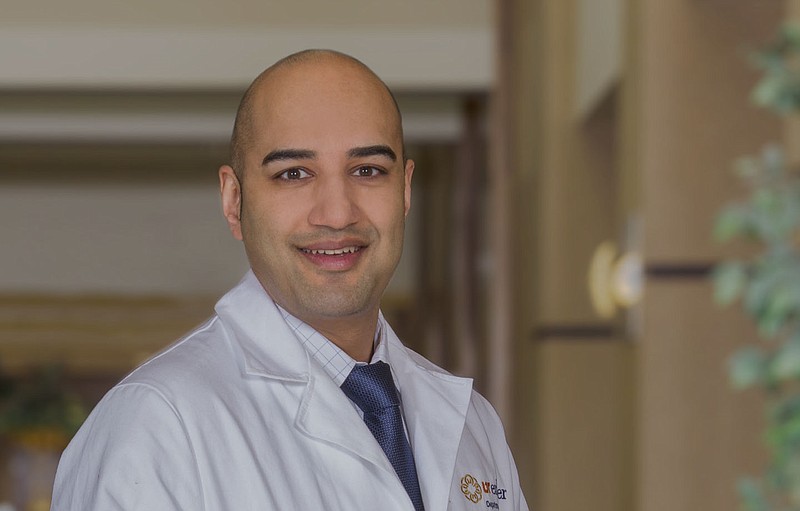After warming the bench over the weekend, 30 patients of an Erlanger urology specialist are about to be back in the game.
On Friday, Dr. Anand Shridharani was scheduled to spend his workday performing 30 vasectomies as part of "Vas Madness," a full-court press on vasectomy procedures timed to the NCAA men's basketball tournament.
The timing is no coincidence. For the past several years, physicians across the country have reported a spike in the number of men wanting vasectomies during March Madness, and many clinics and hospitals are jumping on the bandwagon, even adding on incentives like free pizza.
"The whole idea takes the focus off men's nether regions," says Shridharani. "They have a reason to sit on the couch and watch the tournament on TV."
A vasectomy generally refers to the cutting or tying of the vas deferens, two spaghetti-thin tubes that carry sperm from the testicles to be mixed into semen and released during ejaculation. Preventing sperm from entering the vas deferens can prevent pregnancy, though Shridharani explains that there's a "parking lot" behind the male prostate that can store sperm for several weeks even after a vasectomy. He advises the use of another form of contraception for at least 70 days after a procedure.
Shridharani is a fellowship-trained urologist and reproductive and sexual health specialist with UT Erlanger Urology, as well as an assistant professor of urology with the UT College of Medicine Chattanooga. He says he performs 200 to 250 vasectomies a year in his practice at Erlanger East on Gunbarrel Road, so 30 is a high-scoring day. He uses a minimally invasive technique that requires no needle, no scalpel and no anesthesia.
He does numb the immediate area at play, but he says men's fears that "they're cutting on my testicles, they're cutting on my penis" are unfounded.
"Men tend to group it all together," he says.
His man-to-man zone punctures the skin on the scrotum on each side to reach both sets of tubes. He uses a tool to place a numbing medication under the skin. There's no needle prick, but some men have described the sensation as like a small rubber band snapping on the skin, he says. A small portion of each tube is cut and removed, cauterized and blocked with a clip. No stitches are needed.
He requires a consultation before the procedure, but the total time commitment on game day, so to speak, is usually no more than an hour. Men may feel a little soreness, he says, but with some gauze and a jock strap, they're usually out the door within 15 minutes after he arrives in the exam room. Typically, men who have a Friday vasectomy can return to a desk job or other light-duty work by Monday.
"Honestly, they can drive themselves home," Shridharani says.
Often wives and girlfriends will accompany the patient to the procedure and are allowed to watch, if they wish.
This is the third year Erlanger has offered a Vas Madness promotion. The first was scheduled during the college football ball season in December 2015; the second was during March Madness 2016.
For Friday's Vas Madness promotion, significant others were treated to massages and other pampering.
"Most men bring a spouse or loved one with them on the day of the procedure," says Erlanger spokeswoman Pat Charles. Since women are the primary decision makers when it comes to health care, Erlanger wanted to provide them with a special treat while they wait."
Contact Lisa Denton at ldenton@timesfreepress.com or 423-757-6281.
